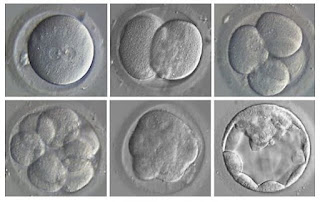Causes for IVF Failure
In vitro fertilisation (IVF) has a global success rate of less than 50%. This implies that nearly half of all IVF patients do not become pregnant, and sadly, your doctor may not always be able to tell you why IVF failed.
IVF is a costly technique that comes with no assurance of success. Once you've figured out how much IVF would cost, the most pressing problem is usually the likelihood of success. After paying tens of thousands of dollars, you don't want to be dissatisfied.
Don't get too worked up just yet; if you understand why IVF fails and discuss your issue with a qualified doctor, you should be able to find a solution.
Why does in vitro fertilisation (IVF) fail?
The IVF clinic you choose, lab parameters, the manner of doing the process, the doctor's expertise and talents, and the embryologist's competency are all elements that might affect your IVF results, but even if all of these conditions are ideal, over 50% of IVF cases will fail.
IVF failures can be caused by a variety of factors.
If you're still wondering why your IVF failed despite picking the best IVF clinic, read on to learn about the personal aspects that could be to blame.
Pregnancy and the growth of an embryo inside the human womb, like other biological processes, is a complicated process. What we don't know about pregnancy is far more important than what we do.
Fertility doctors have been able to pinpoint certain particular elements that may be to blame when it comes to IVF failure:
1. Failure of embryo implantation
The IVF process is difficult, and there's no way of knowing where the success is being thwarted. The failure of the embryo to connect to the uterus lining is one of the most common causes of IVF failure.
Embryo implantation failure can be caused by either a problem with the embryos or an issue with the uterus, but it's impossible to say which one caused the failure in your situation.
In almost 90% of cases, most infertility doctors feel that embryo arrest is to blame for implantation failure.
Several of the embryos generated will die before day 5, but even those that survive the first few days and appear to be healthy will die after being transplanted to the uterus at some point.
There are a variety of factors that might result in poor-quality, weak embryos that do not develop past a certain stage, but these problems are still considered a "black box" in the IVF field, and there is no foolproof technique to figure out what's wrong with the embryos.
Sometimes the embryo is too weak for IVF due to genetic or chromosomal problems, while other times the embryo just does not have enough cells to live and will not grow.
PGS testing with IVF is one technique to boost your chances of IVF success by studying the genetic composition of embryos before transferring them to the uterus. This allows the clinician to choose the embryos that have the best probability of surviving.
2. Eggs of good quality
Embryo implantation rates are higher (about 50%) in women under the age of 35, compared to just around 12% in women over the age of 40.
What is wrong with my uterus? would be a common question among older ladies. Why isn't it taking embryos?
Some people are tempted to hire a surrogate at this point, but science disagrees.
IVF failure due to egg quality
Switching to IVF using donor eggs is more likely to offer you success if your uterus is totally healthy but the quality of your eggs (and the resulting embryo) is inadequate. Even transplanting your eggs to a surrogate's uterus will achieve the same effect if your eggs are the cause of the IVF failure.
A 70-year-old Indian woman gave birth to a baby she conceived through IVF in 2016. The idea is that if there are no underlying medical concerns, an older woman's uterus can carry a pregnancy to term.
The majority of IVF failures in older women are due to aged eggs that are no longer viable for conception.
3. Ovarian response and female age
IVF success is also influenced by the woman's age, uterine health, and how her body reacts to IVF drugs.
A woman's ovary normally releases one egg every month, from a collection that is fixed at birth and drastically diminishes after the mid-30s.
Medication is given before an IVF round to encourage the ovaries to generate more eggs. Your body may not respond correctly to IVF drugs if you already have a low number of eggs or high FSH levels, which is not a good sign.
If your body responds well to the medicine and produces more eggs, you have a strong chance of having a successful IVF procedure because it suggests that your hormones are operating normally. If it doesn't, your chances of IVF success may be diminished as well.
These simple fertility tests for women will give you an indication of your fertility levels and assist your doctor in determining the best treatment option for you.
4. The sperm's quality
Sperm play a complex role in fertilising the female egg, and they must be healthy, motile, and in sufficient quantity to accomplish so.
Both the eggs and the sperm have receptors on their surfaces that allow them to interact. During this contact, enzymes released by the sperm head break down the egg's outer membranes, allowing it to pass through.
However, with the exception of chromosomal factors, sperm are rarely a cause of IVF failure because any quantitative or qualitative issues with the sperm are easily detected during semen analysis, and patients are then given the choice of intracytoplasmic sperm injection (ICSI) or IVF with donor sperm.
5. Genetic and chromosomal factors
Human embryos with chromosomal abnormalities are one of the most common causes of IVF failure.
Several studies have found that after the mid-30s, the rate of chromosomal abnormalities in human eggs (and thus in human embryos) begins to rise dramatically.
IVF in women over 40 generally results in poor-quality embryos, with over 75% of them having chromosomally abnormalities. As a result, older women have a lower success rate with IVF.
It's thought that older eggs have an ineffective spindle apparatus that can't correctly align the chromosomal pairs. When chromosomal pairs are not divided properly, the essential balance of 23 chromosomes per egg is disrupted.
Chromosomal abnormalities in sperm can also result in chromosomally defective embryos, but the risk is said to be low compared to the risk in human eggs.
According to the Translational Andrology and Urology Journal, 15% of males with normal sperm analysis may have defective sperm DNA. Sperm DNA fragmentation analysis can uncover genetic issues in sperm, which, while not frequently used, has been a crucial turning point in the treatment regimen of some of our customers.
Pregenetic screening (PGS) tests can determine an embryo's chromosomal integrity.
How do you figure out why IVF didn't work?
IVF rounds do not always succeed, and pinpointing the specific causes for failure can be difficult.
Understanding the probable causes of failure—age, egg/sperm quality, uterine health, and so on—could be important to proper treatment planning and a clear opportunity at a healthy pregnancy.
If you've tried IVF numerous times and still haven't gotten pregnant, it's time to modify your strategy.
Dr.Malpani of one of India's most successful IVF clinics explains why IVF doesn't work and what you can do about it:
Even if there are two or three plausible reasons for IVF failure in your case, it is preferable to follow a firm treatment plan following a thorough diagnostic rather than jumping right into IVF. A comprehensive evaluation may find that you require supplements or minor surgery before attempting to conceive, or that you do not require IVF and merely need to change your lifestyle.
Before throwing tens of thousands of dollars at random therapies, you can contact with some of the most experienced IVF professionals at Infertility Aide and select the proper treatment.
The significance of a correct diagnosis
A modification in medication protocol could help if there aren't enough eggs developed for extraction. If you have PCOD or thyroid issues, you may be referred to an endocrinologist to help restore your hormone balance and prepare your body for a healthy pregnancy.
IVF failure is difficult for everyone, but it occurs when the embryos you're developing are unhealthy or your body isn't ready to deliver a pregnancy.
Do not be discouraged. Choose a qualified, experienced fertility doctor who can assist you in determining the possible causes of IVF failure in your instance and offering treatments that can help you get closer to having your kid.
Do you know of any other less obvious reasons for IVF failure? Do you believe any of the aforementioned factors influenced your IVF success?
Need help in getting pregnant ? Please send me your medical details by filling in the form at www.drmalpani.com/free-second-opinion so that I can guide you!







